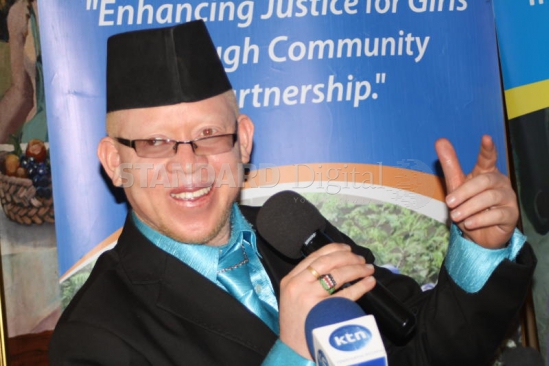×
The Standard e-Paper
Smart Minds Choose Us

In her new book released a month ago, folklorist and writer Emily Urquhart reveals her tribulations after she learned that her baby had albinism. She speaks of the dark tales and superstitions that have long surrounded her daughter’s genetic condition.
Beyond the Pale is a disturbing reminder of the brutal violence many people with albinism continue to face today.